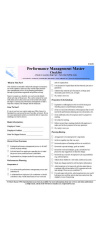You may finally be noticing that you simply cannot find what you need using Google and the other search engines. In fact, it’s fair to say that Google search results have slowly been declining in quality and usefulness over the last 18 months, but in the last weeks, the problem has increased drastically. What’s happened? If you are a regular user of Google, (we’ll focus on Google here), or are a business owner/operator here’s things you NEED to know.
The Symptoms — Useless Search Engine Results From Google
You enter a search, using a phrase of keywords. You get back a page of results that is only tangentially related, and contains 5–10 results from a single site. None of those sites have much to do with your search. Your fault? Not likely.
- Or, you do a search and start clicking on what sounds like good pages, only to find, on arriving, that all that’s on the page are ads. Whole pages of ads. Or worse, the page doesn’t exist, or it reroutes you to places you REALLY don’t want to go to.
- Or, the quality of the content of the pages you eventually arrive at are so superficial and cloned that it’s impossible to find GOOD, WELL THOUGHT out treatments of the subject or product you want information about.
- Or, you enter in a company name to find out where it is, or what it sells. Pretty straightforward, right? Not so. What you will almost always get is ten or more listings of companies that purport to provide information about the company (often it’s just blank pages), but the actual company page — the official page, may be buried, and hard to find.
- Interested in news and current events? Good luck. What you will find is the same stories, often from a single source, posted and coming up in search engines dozens of times. Supposedly new material is just old news stories recycled, and re-dated.
It’s crazy making. For me, it’s so crazy making that I spend about 90% less time using the Internet at my main computer.
The Causes: A Complex Issue
So, what’s happened? It’s actually a convergence of a number of factors — a perfect storm of shifts that have changed the Google landscape entirely. The thing is that if you are not a webmaster actively running sites, you won’t know what’s gone on. First, The Nature of The Internet The Internet, itself, has changed, with the explosion of “content” such that there are far more websites than there ever have been. But the sheer size isn’t so much the problem as is the ratio of useful content and sites to completely useless sites that are designed to sell you something via third party ads. Add to that the ease of creating blogs and pages, and at no cost, and what you have is a shift in the ration. Bad pages have grown at a faster rate than good pages. That’s because well thought out coverage of a product or issue takes time to do. It’s easy to take a product description from a company, change the wording, and pretend it’s a review. A monkey can do it. To conduct a thorough product review, however, takes a lot of time and expertise. In short, you have a massive increase in useless content, relative to the increases in good content. That leaves it to the search engines to automatically figure out what is good, and what is junk, and they simply aren’t up to the job technically, or they don’t have incentive to do a better job. The result? You can’t find what you need.
Second, Complexity Issues And Search Engines
Complex systems is one of my interests. A complex system is one that has many many interacting parts, so that the end result is something that cannot be understood by any one person. The whole is not the sum of its parts. Search engines in general use complex systems to serve up your search results, and the more complex the systems get. the harder it is to do it well. Google, in particular has run afoul of the issue, since, over the last two years, in attempts to provide better results, they have made their search engine system so complex that it may be it simply cannot be fixed anymore. Interestingly enough Yandex.com, in Russia, has a system much more similar to the pre-complex system that Google has developed and often its results are simply better.
Third, Follow The Money If You Want To Understand Poor Search Results
Perhaps the most important reason for the poor results is money. Google makes its money from selling ads on its search pages, so for example, they might receive a dollar or two when you click on one of those ads. Or more. Multiply that by billions of searches, and it starts to add up. So what’s the relationship to poor results? We are not saying that Google is intentionally trying to get you to click on paid ads rather than search engine results for which they don’t get paid (as some have alleged), but there IS a disincentive to have you click on non-paying links. A HUGE disincentive. There is a force working in the opposite direction, which is that IF you perceive Google search results to be useless, you might stop using them. So, if one was operating the search engine, it pays to stay in a sweet spot, where the search engine results are just good enough to keep you coming back, but just poor enough that you’ll click on the paid links.
Fourth, Gaming The Search Engine System — Blackhat
Since search engines began and big money was on the line, webmasters have tried to game the system. That is, try to rank high for search engine results for specific keywords even though they have useless content, and their sites have minimal or no value. As E-Business has increased, the money at stake is in the billions, and Google has had to find ways to counter what is called blackhat search engine techniques. It’s an escalating war, and it’s one major reason why Google has made their system SO complex. They keep adding ways to separate the junk from the good, and as complexity increases their ability to control the overall system is reduced. No fault for Google there. But there’s a lot more to this particular issue which we’ll cover in future articles.
Conclusion
Not only have the Google results worsened, at least as reported by many webmasters, but it may be that they will not get better, because it’s not possible to make them better. Again, we’ll look at this possibility in later articles. For right now, if you are a user, try Bing.com and Yandex.com in addition to Google, and see what works best for you. Stay tuned.






